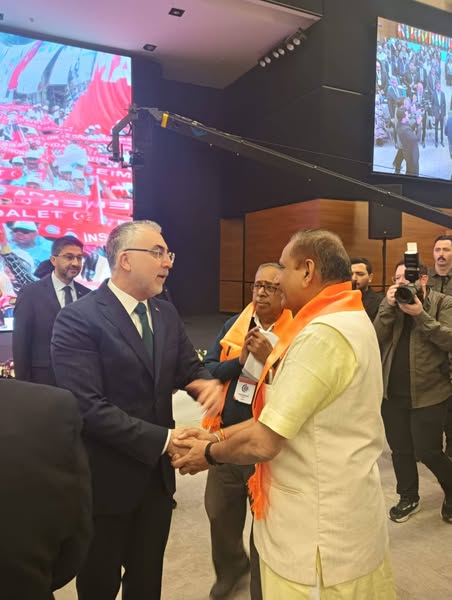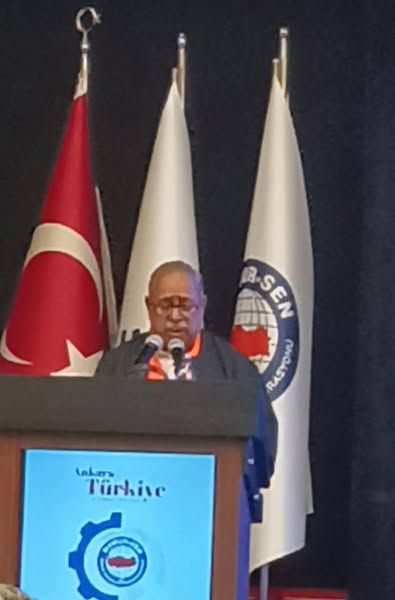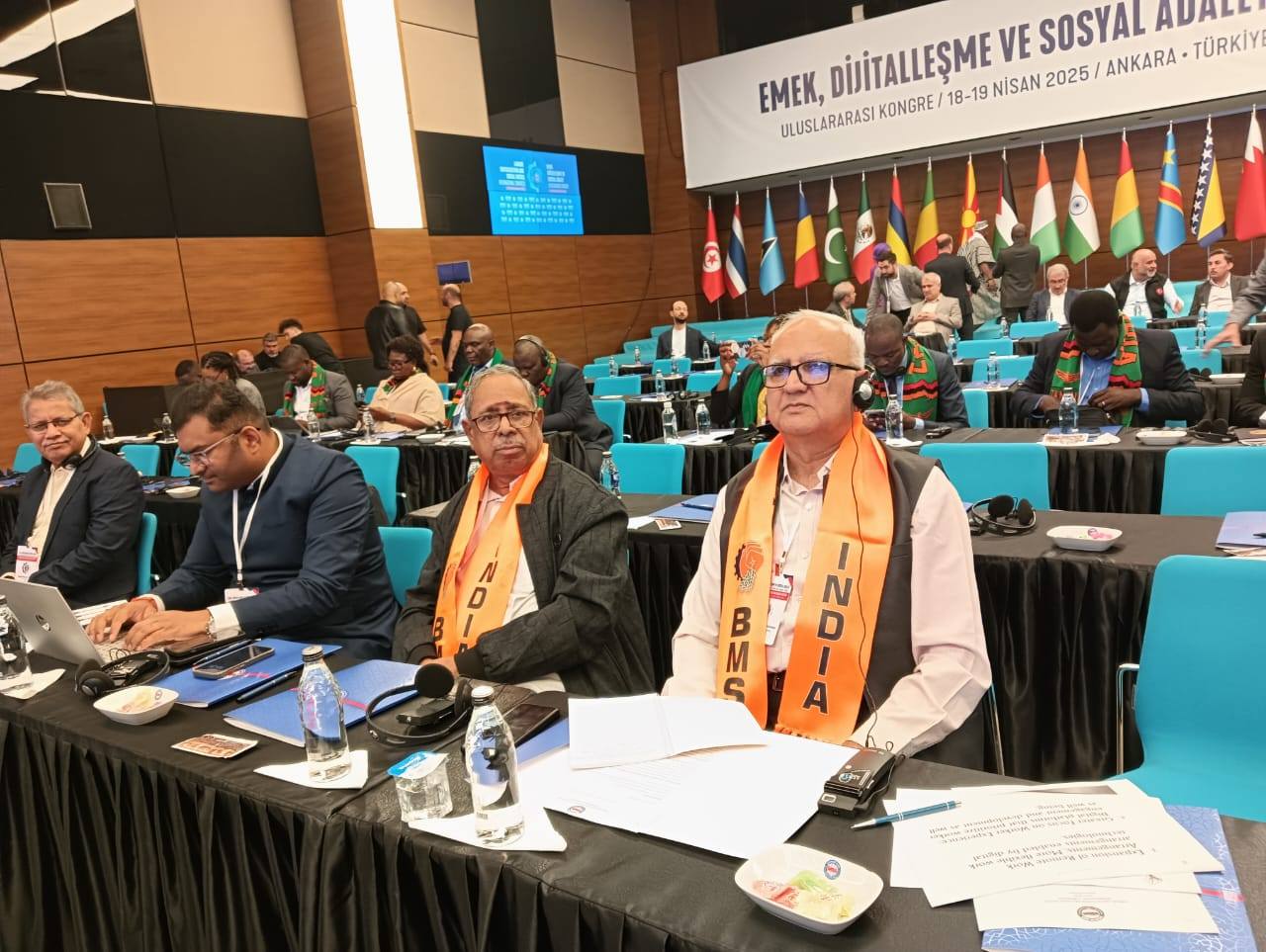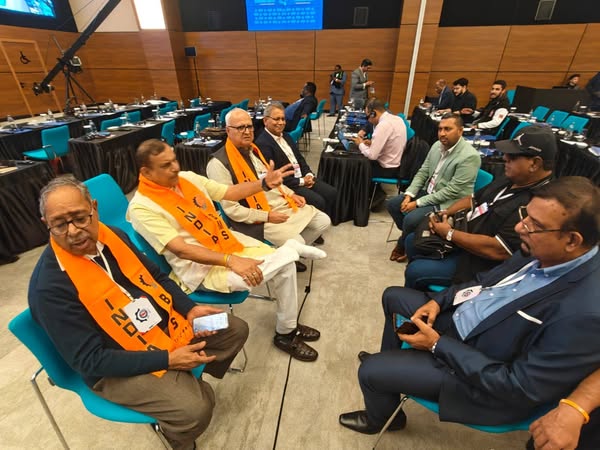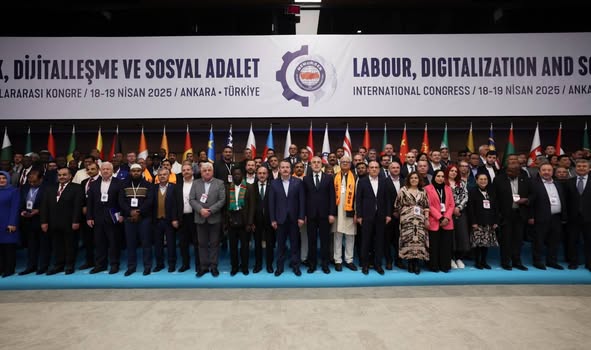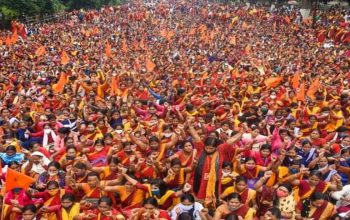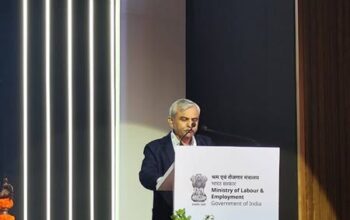The Bharatiya Mazdoor Sangh (BMS) has urged all national governments to establish Artificial Intelligence (Al) regulatory mechanisms to safeguard workers from job displacement and enhance productivity. This demand was made during the International Congress on Labour Digitalization and Social Justice, held in Ankara, Turkey, from April 18th to 21st, 2025.
The high-level BMS delegation, led by General Secretary Sri Ravindra Himte, emphasised the need for regulations covering Artificial Intelligence, Machine Learning, and the Internet of Things (IoT). The BMS acknowledged that while modern technology offers undeniable benefits and can make life easier, it also poses a serious threat to the workforce due to its increasingly impersonal and inhuman impact.
A six-member delegation from India, representing three major Central Trade Union Organisations Viz. Bharatiya Mazdoor Sangh (BMS), Trade Union Coordination Centre (TUCC), and National Federation of Independent Trade Unions (NFITU)-participated in the Congress, which Memur-Sen, a central trade union of Turkey, organised.
More than 200 delegates from 36 countries, including distant nations such as China, Thailand, and several Caribbean countries, took part in the event. Prof. Burhanettin Duran, Hon. Deputy Minister of Foreign Affairs, Republic of Turkey, formally inaugurated the Congress on April 18th. Dr. Vedat Işıkhan, Hon. Minister of Labour, Republic of Turkey, addressed the delegates as a special guest on the second day. Mr. Ali Yalçın, President of Memur-Sen, presided over the sessions.
The Congress featured four plenary sessions and four panel discussions focused on critical and timely issues.
The first panel on “The Impact of Globalization and Digitalization on the World of Work was moderated by Mr. Valentine Okechukwu Udeh, Assistant Secretary of OATUU, Ghana.
The second session on “Ensuring Social Justice in the Workplace and Addressing Income Distribution” was led by Mr. Mochamad Djumhar Hidajat, President of KSPSI, Indonesia.
The third session on “Organizational Diversity, Global Solidarity, and Sustainable Labour Relations” was moderated by Mr. Surendran Bojji, All India Organising Secretary, BMS, India.
The final panel, “The Impact and Transformation of Digitalization on Trade Union Structures”, was moderated by Mr. Rolland Herman Ignacio, Secretary General, ADS of Caribbean Countries.
During the plenary sessions:
Sri Ravindra Himte (BMS) spoke on safeguarding labour interests in the digital era.
Sri S.P. Tiwari (TUCC) addressed the issue of growing income inequality and proposed solutions.
Dr. Virat Jaiswal (NFITU) highlighted the responsibility of national governments to implement sustainable labour relations effectively.
The Congress concluded with the adoption of a seven-point resolution titled the “Ankara Declaration on Labour, Digitalization, and Social Justice.”
The BMS delegation met the HE Indian Ambassador of Turkey, Sri Muktesh Pardesi, at the Indian Embassy in Ankara. They held fruitful discussions on the status of Indian Migrant labour working in different Islamic Countries. Sri Muktesh Pardesi was the Special Secretary of G 20-India programmes. He guided BMS during different events of Labour 20 under G20 India.
(Ravindra Himte)
General Secretary



